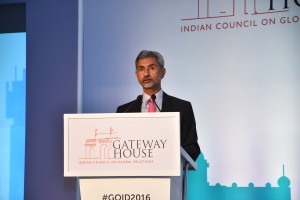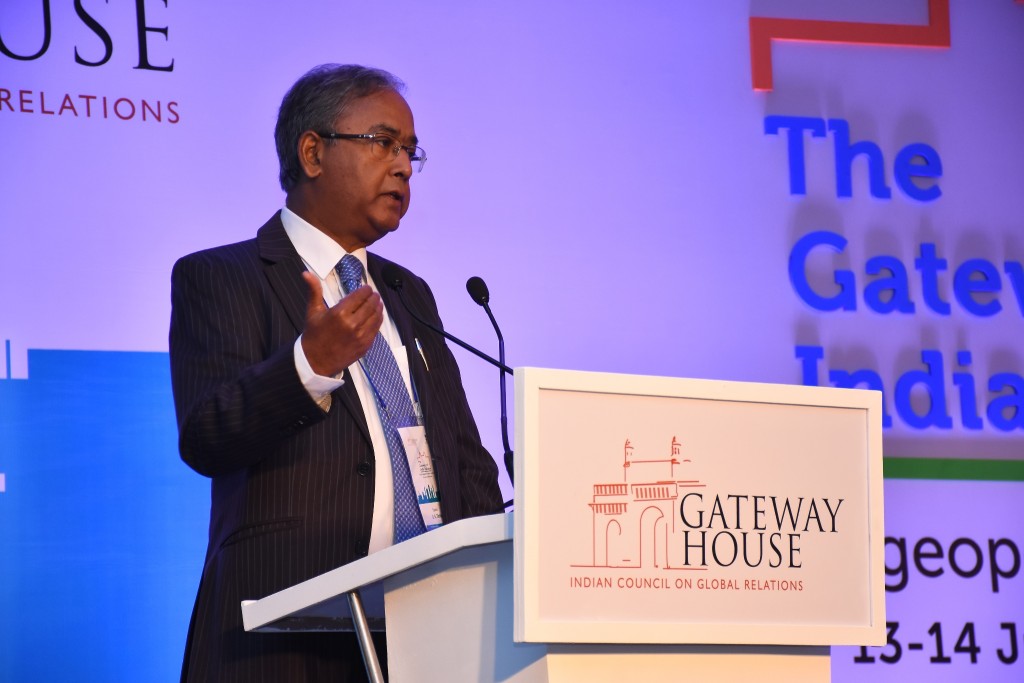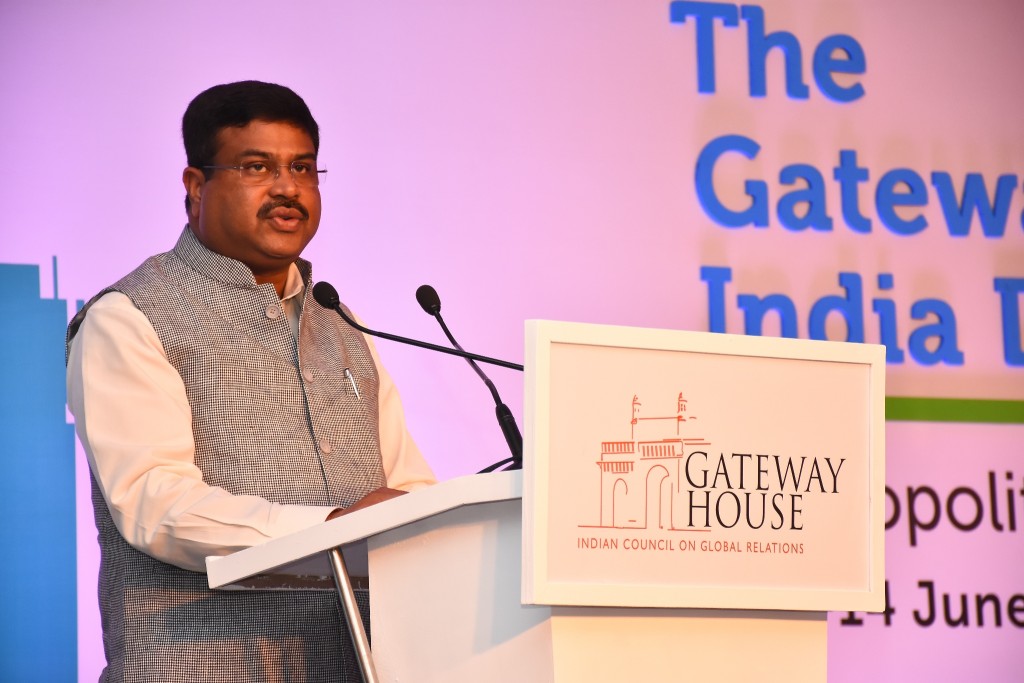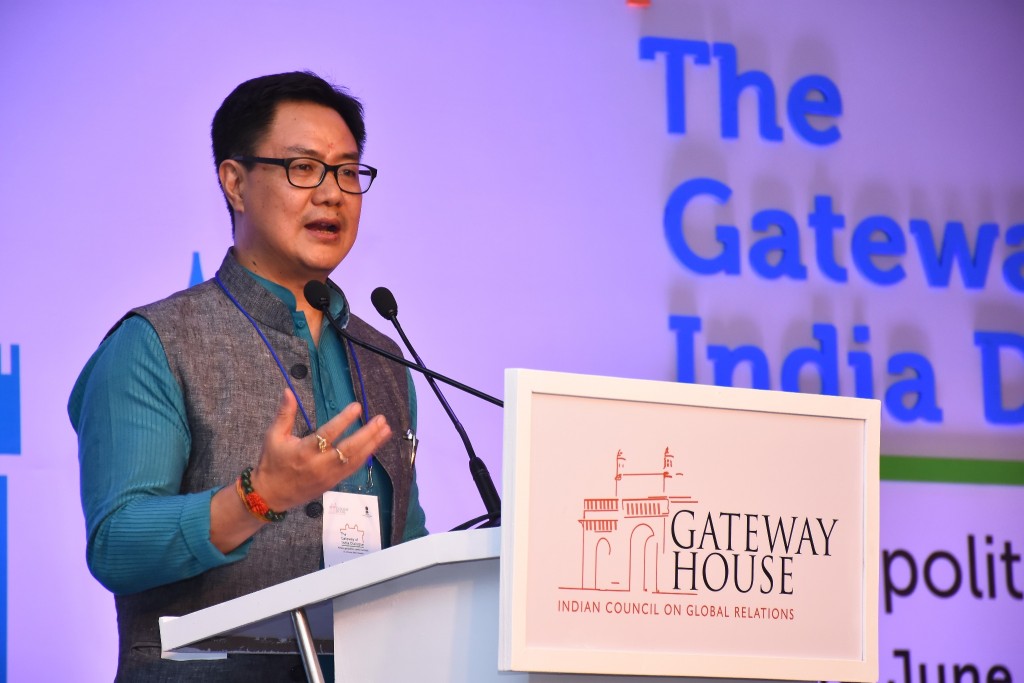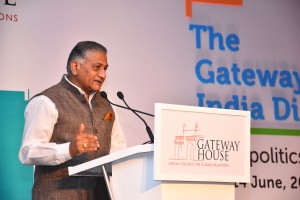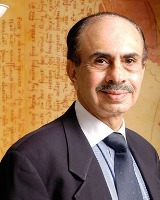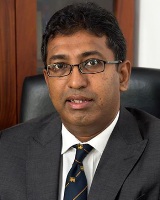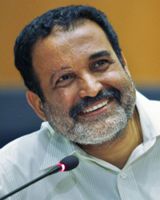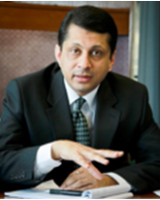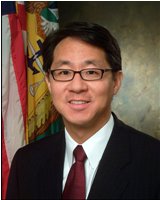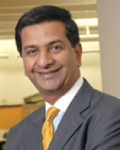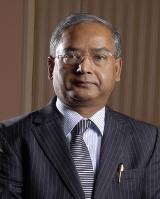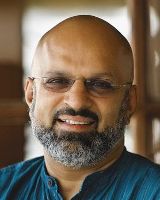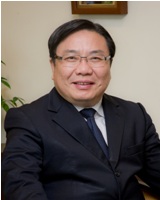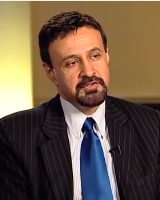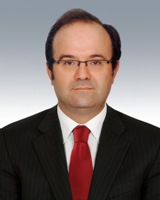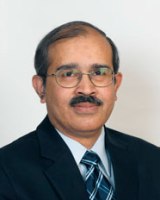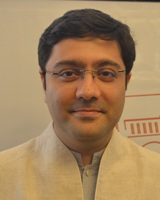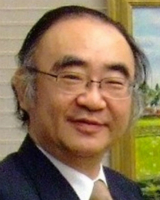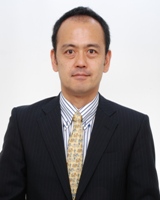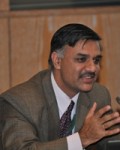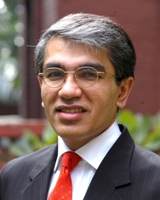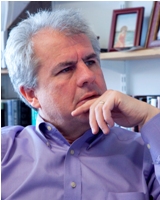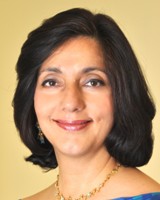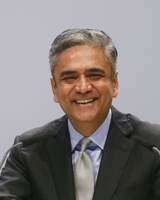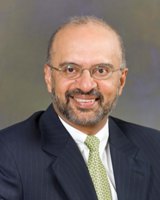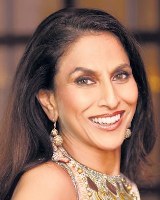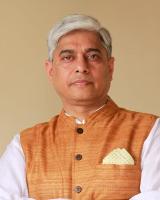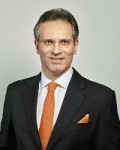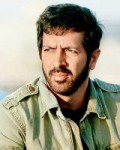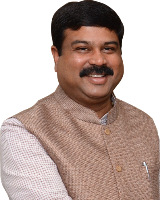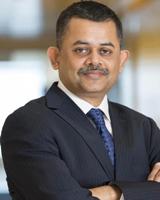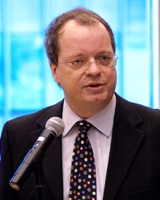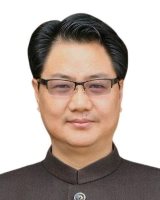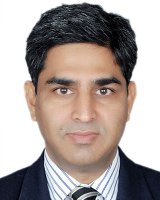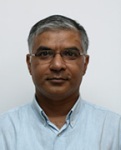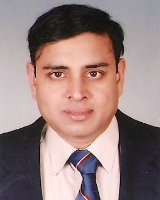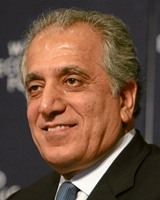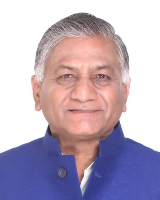13 June, 2016 | Monday
(Free for) Bilateral meetings between Foreign, Finance, Commerce ministers and officials.
6.00 – 7.20 pm: Reception for delegates and select invitees
7.30 – 8.15 pm: Keynote Session: Aligning Business and Strategic Goals
Welcome Remarks by Blaise Fernandes, CEO, Gateway House
Introduction by Adi Godrej, Chairman, Godrej Group
Opening Address by Harsha de Silva, Deputy Foreign Minister, Republic of Sri Lanka
Keynote Address by S. Jaishankar, Foreign Secretary
Around the world, governments are aligning foreign policy and business priorities to formulate a comprehensive foreign economic policy. India is being propelled rapidly on this path by its national economic objectives, foreign business interests, shifting global investment trends, and commitments to multilateral economic forums. Now is the time for business and government to creatively design a foreign economic policy together.
Related article: BRICS headquarters in Mumbai | BRICS bank: what’s in a location? | Making Mumbai great again
8.30 pm: Dinner
14 June, 2016 | Tuesday
7.30 – 8.00 am: Breakfast and Registration
8.00 – 9.00 am: Opening Dialogue: Innovating for Asian Integration
Mohandas Pai, Chairman, Manipal Group
Curtis Chin, former U.S. Ambassador to the Asian Development Bank
Syed Munir Khasru, Chairman, IPAG (Institute for Policy, Advocacy and Government), Bangladesh
Moderator: K.N. Vaidyanathan, Chief Risk Officer, Mahindra Group
As Asia begins to envision its potential as a Common Market, the possibilities to innovate for this integration are immense. Can Asia’s technology giants partner with each other to create new products and services that are affordable and innovative for Asian markets – and beyond? What policy innovations are needed to stimulate these new trends?
Related article: Innovation bridge: Silicon Valley to India | The Manipal Dialogue: Asia together
9.10 – 10.20 am: Breakfast Keynote: The Politics of Global Capital
Keynote by U.K. Sinha, Chairman, Securities and Exchange Board Of India
Discussion:
Zhang Wencai, Vice President, Asian Development Bank
Jane Diplock AO, Deputy Chairman, International Integrated Reporting Council
Rohinton P. Medhora, President, Centre for International Governance Innovation, Canada
Moderator: Luis Miranda, Senior Advisor, Morgan Stanley Infrastructure
Capital seeks return, and is indispensible for economic activity. But as the world becomes more financially integrated, capital is being used with greater intensity as an instrument for securing geopolitical and geoeconomic goals. Currency wars, global financial regulations, international financial centres and transnational financial market infrastructure – these are the platforms where the new global economic rules are being designed.
10.20 -11.45 am: Dialogue II: Strategic financing for effective economic diplomacy
David Rasquinha, Deputy Managing Director, EXIM Bank India
Mark Calabria, Director of Financial Regulation Studies, CATO Institute
Hans Kundnani, Senior Transatlantic Fellow, German Marshall Fund, Berlin
Kapil Kapoor, Director, African Development Bank
Serdar ÇAM, President, Turkish International Cooperation and Development Agency
Moderator: Akshay Mathur, Director of Research and Geoeconomics Fellow, Gateway House
The era of aid diplomacy initiated by the West has been overtaken by China’s innovative, successful resource diplomacy. With the establishment of China’s AIIB and the New Development Bank, outward foreign direct investments, export financing and sovereign wealth funds are becoming strategic instruments of the new economic diplomacy. India is starting to participate, beyond its existing strengths in capacity-building programmes. What are the pros and cons of this evolving architecture? How effective has this evolution been for developing countries and emerging markets? Can India add new dimensions to this diplomatic play?
11.50 – 1.00 pm: Luncheon Keynote: Mega trade agreements: Economic fragmentation or integration?
Dialogue/Discussion:
Hidetoshi Nishimura, President, ERIA, Indonesia
Seiji Takagi, Deputy Director-General for Trade Policy, Ministry of Economy, Trade and Industry, Japan
Wang Wen, Executive Dean, Chongyang Institute of Financial Studies, Renmin University, Beijing
Moderator: Sachin Chaturvedi, Director General, Research and Information Systems, New Delhi
The new mega-trade agreements being proposed will have winners and losers. The old institutions like the WTO are weakening as focus shifts to plurilateral arrangements, and include services, investments and sub-national regulations. Where does India stand in this, the spaghetti bowl of trade agreements? How will the emergence of mega-trade agreements impact and influence the new rules of trade?
Related article: TPP & ISDS: new tests for India
1.00 – 2.00: Lunch
2.00 – 3.30: Dialogue III: Globalization of Talent and Movement of Labour
Manish Sabharwal, Teamlease
Lant Pritchett, Harvard Kennedy School, author Let their People Come
Chris Alexander, former Minister of Immigration, Canada
Moderator: Meera Sanyal, Director, Pradan
Two global movements are occurring simultaneously. One is the globalization of technology, finance, goods and services, which has created clusters of talent and prosperity around the globe. The other is massive migration, for economic security or as refuge from wars. How are countries and companies dealing with these divergent but concurrent shifts? Has it stalled the process of economic integration? How can talent be successfully harnessed within these vast migrations, without slowing down global economic momentum?
3.30 – 4.30: Dialogue IV: Virtual finance: inclusive, invisible, impactful
Anshu Jain, Former Co-CEO, Deutsche Bank; Advisor, SoFi
Piyush Gupta, Group CEO, DBS Bank, Singapore
Moderator: Jane Diplock AO, Deputy Chairman, International Integrated Reporting Council
The existing global financial system is being upended by innovations in mobile banking, cashless transactions, bitcoin, crowd-funding and the still-vibrant hawala system. How will these innovations shape the global financial order? What international and domestic policies should we design to enable an effective, legitimate and fair financial system?
Related article: China: Internet Finance pioneer
4.30 – 5.30: Dialogue V: Soft Power, Hard Influence
Vikas Swarup, spokesman, MEA; author of Q&A (Slumdog Millionaire)
Kabir Khan, Director
Hugo Weihe, CEO, SaffronArt Mumbai
Moderator: Shobhaa De, Columnist and Author, Superstar India
In the 21st century, great powers are no longer defined by just their economic or military prowess – but by their ability to be liked and respected as a leader. Soft power is typically viewed as an attractive culture, cuisine, technology, society, but also in more political terms as democracy and institutions. Prime Minister Narendra Modi’s frequent references to the Upanishadic concept of Vasudhaiv Kutumbakam, One World Family, introduces another dimension, raising the bar for India to position itself beyond culture as its soft power strength, to being a champion of both multi-culturalism and ecologically-balanced economic growth.
Can India convert this new dimension into hard geopolitical influence?
5.30 – 5.45 pm: Tea/Coffee Break
5.45 – 6.55 pm: Power Dialogue: The Geopolitics of New Energy
Keynote by Dharmendra Pradhan, Minister of State, Petroleum and Natural Gas
Dialogue/Discussion:
Martha Crawford, Executive Director, Sustainable Development Solutions
R. Andreas Kraemer, Senior Fellow, IASS Potsdam; Founder & Director Emeritus, Ecologic Institute, Berlin
Eytan Sheshinski, Professor Emeritus, Hebrew University of Israel
Moderator: Neelkanth Mishra, India Equity Strategist, Credit Suisse
The influence of energy is shifting from the oil-rich West Asian countries to the newly producing developed countries, and shifting from the physical markets to the commodity markets. How will this shift impact the trade and investments in global energy assets? What will be the impact of the financialisation of energy markets on price discovery, cross-border trading and hedging?
7.00 – 8.10 pm: Evening Keynote: Cybersecurity and Terrorism
Keynote by Kiren Rijiju, Minister of State for Home Affairs
Dialogue/Discussion:
Narendra Karmarkar, mathematician, author of the Karmarkar algorithm
Madan Oberoi, Director, Cyber Innovation & Outreach, Interpol Global Complex for Innovation, Singapore
Zalmay Khalilzad, President, Khalilzad Associates
Moderator: Santosh Jha, Joint Secretary, Global Cyber Issues, Ministry of External Affairs
The traditional threats to international business investments and trans-national financial market infrastructure have intensified and also moved into cyber-space. Protecting critical business infrastructure from state and non-state hackers and terrorists groups is becoming a priority. This panel will discuss how governments and businesses can collaborate to design policies against international security risks and cyber-warfare.
Related pages: Geopolitical rivalries in cyberspace | The ‘deep web’: new threat to business | U.S.-China: no more spy games?
8.15 – 8.45 pm: Evening Keynote: India’s Global Positioning
General (retd.) V.K. Singh, Minister of State for External Affairs
A case for India’s global positioning: moving beyond being a ‘balancing’ power to being a ‘leading’ global power.
*TBC


